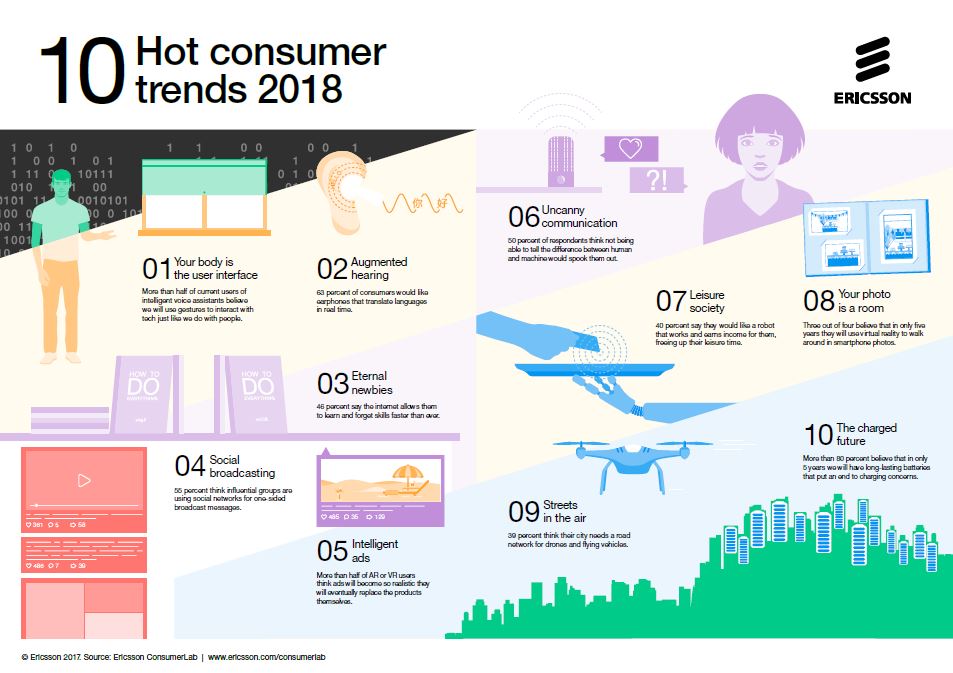Longer Batteries To Shape Technology Future
By Pelumi Olaleye
Globally, smartphone batteries discharge easily and quickly because of too many running applications. The good news is that in the next five years (2023) there would be long-lasting batteries that would put an end to charging concerns.
This was part of the Ericsson’s recent study, tagged: ‘ 10 Hot Consumer Trends For 2018’. And it explained that more than 80 per cent strongly believe that in only five years , charging concerns would become history in the charged room. While more than 5,000 global advanced users are now trying to capture how the people see the future.
Commenting during a media interaction, Country Manager, Ericsson Nigeria,Mr Olivier Vandermoten, said, technology has brought about incessant and continuous changes, and the ability to understand those changes before it occurs.
“Fifty per cent of high end internet users believe that in five years,humans would not be able to tell the difference between robots and humans, because they grow daily in intelligence and have also mingled with humans. While 65 per cent of high end internet users, forsee wireless earphones that can translate languages in seconds and also block out noises, so that an individual could filter what he wants to hear; which could be worn 24/7 even when sleeping.
“Consumers are of the believe that in three years, we would be able to use intonation, body language, touch and gestures to interact with technology like we do with humans”.
The country manager further disclosed that In five years, visual reality would be used to advertise products and also substitute the physical experience, saying, ” and more than 39 per cent think their city needs a road network for drones and flying vehicles. But almost as many worry that a drone would drop on their head. Three out of four believe that in five years they will use virtual reality to walk around in smartphone photos.
“Forty per cent say they would like a robot that works and earns income for them, freeing up leisure time”.
Also Speaking, Head of Research, Ericsson ConsumerLab,Michael Björn, says: “We are entering a future where devices neither have buttons and switches nor need to be controlled digitally via smartphone. In fact, this may be a necessary change, as it would be difficult for people to learn a new user interface for every device that gets connected to the Internet of Things.
“Today, you have to know all the intricacies of the devices you use. But in the future, the devices will know you instead. For this to become a reality, devices must be able to relay complex human interaction data to cloud-based processing, and respond intuitively within milliseconds, increasing requirements on next generation connectivity.” He said.


